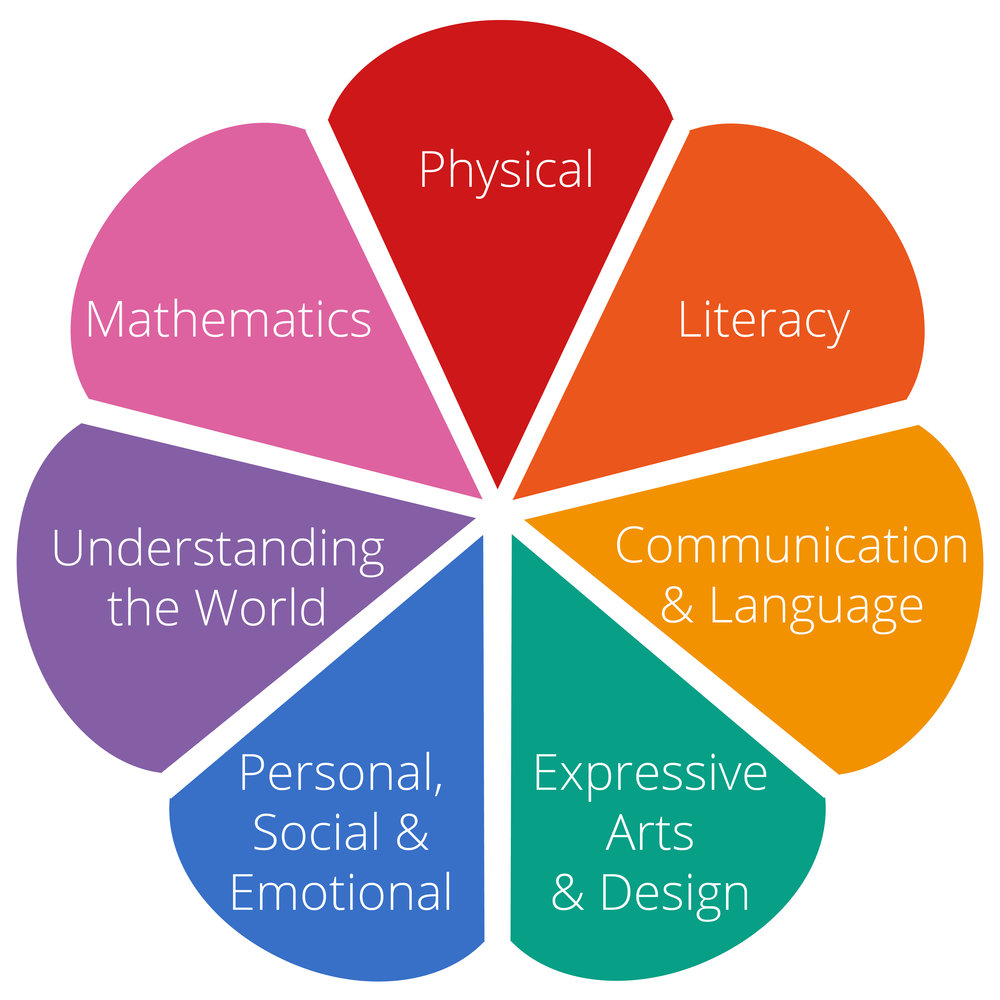EYFS Curriculum
We believe every child deserves the best possible start in life and the support that enables them to fulfil their potential. Children develop quickly in the early years and a child’s experiences between birth and age five have a major impact on their future life chances. A secure, safe and happy childhood is important in its own right.
Good parenting and high quality early learning together provide the foundation children need to make the most of their abilities and talents as they grow up.
The Early Years Foundation Stage (EYFS) sets the standards that all early years providers must meet to ensure that children learn and develop well and are kept healthy and safe. It promotes teaching and learning to ensure children’s ‘school readiness’ and gives children the broad range of knowledge and skills that provide the right foundation for good future progress through school and life.
The New EYFS seeks to provide:
- Quality and consistency in all early years settings, so that every child makes good progress and no child gets left behind
- A secure foundation through planning for the learning and development of each individual child, and assessing and reviewing what they have learned regularly
- Partnership working between practitioners and with parents and/or carers
- Equality of opportunity and anti-discriminatory practice, ensuring that every child is included and supported
- Learning and development and for safeguarding children and promoting their welfare.
The overarching principles are:
- Every child is a unique child, who is constantly learning and can be resilient, capable, confident and self-assured
- Children learn to be strong and independent through positive relationships
- Children learn and develop well in enabling environments with teaching and support from adults, who respond to their individual interests and needs and help them to build their learning over time. Children benefit from a strong partnership between practitioners and parents and/or carers.
- Importance of learning and development, Children develop and learn at different rates.
In Learning and Development there are 7 areas which make up the curriculum:

The 3 prime areas:
- Communication and Language
- Physical Development
- Personal, Social and Emotional Development
The 4 specific areas:
- Literacy
- Maths
- Understanding the World
- Expressive Arts and Design
Adult- Led Curriculum
By adult-led curriculum we mean: all the things that we want children to know, experience and be able to do as a result of their time in our early years. Our curriculum has huge emphasis on developing communication and vocabulary.
We designed our curriculum with the particular strengths and needs of the children of #teamcarrmill in mind. Our curriculum is carefully planned to ensure children in Nursery and Reception make progress towards meeting our early years goals that link to our KS1 and KS2 learning so they can build upoin what they have learned in EYFS throughout their journey in school. Our goals provide an overview of many of the different things we would like children to know and be able to do.
We offer scaffolding and extra support to help every child to access the curriculum and to ensure they make progress through it.
Child-Initiated Learning
For most of the time, children at Carr Mill are engaged in exploration and play- based learning which is well-resourced and well-supported. Children have significant choice and independence as they play. This supports their developing confidence, independence, collaboration, persistence and self-regulation. Exploration and play-based learning can be chosen entirely by the child or can be guided by the practitioners in a playful way.
Practitioners have a key role in supporting this learning by developing episodes of joint adult/child attention and listening to the children and developing conversations with them. Practitioners gently challenge children’s thinking. They provide suggestions and resources over time which make the learning more challenging. They use new vocabulary naturally and repeatedly, so children use and learn those words. As practitioners interact with the children minute-by-minute, they are reflecting on how their interactions can support further learning.
Development Matters
In our Early Years Foundation Stage (EYFS), we follow the 'Development Matters in the EYFS' non-statutory framework produced by Early Education. This is a nationally recognised progression framework and used in EYFS settings across the country. At the end of the EYFS, we will judge the children against the national 'Early Learning Goals' as stated in ‘Statutory Framework for the Early Years Foundation Stage’.
